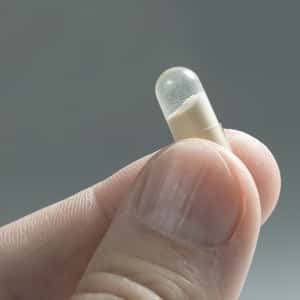
Diarrhea that comes and goes suddenly and unpredictably can be a serious problem even if it is not connected to a serious diagnosis. People who have this experience may become reluctant to leave home, even to participate in their usual social activities. One reader found that taking the probiotic acidophilus served as a solution.
Acidophilus for Sudden Unexpected Diarrhea:
Q. Whenever I would go out to eat, I would frequently suffer from sudden diarrhea. This led to jumping out of the car and climbing through ditches to reach a sheltered area or charging into a nearby store with the hope of finding a restroom. Sometimes I’d arrive home and have to hose myself down in the backyard as I was not able to find an appropriate “outlet” in a timely manner.
Then someone in my apartment building mentioned acidophilus and asked if I had tried taking it. I had not, so she gave me a bottle. It has been like a miracle.
I cannot help but wonder how many thousands of people with troublesome diarrhea would benefit from using acidophilus. Please mention this in your column.
Match the Treatment to the Cause When Possible:
A. There are many possible causes of diarrhea. They include intestinal infection or parasites, food poisoning, lactose intolerance, irritable bowel syndrome, inflammatory bowel disease, overactive thyroid gland, celiac disease and other problems. Consequently, we doubt that your remedy will work for everyone.
Nonetheless, it could be worth a try. Lactobacillus acidophilus is one of the most common probiotics. These beneficial bacteria are used to replenish the gut microbiota after antibiotics. We don’t know if that might have been a trigger for your condition.
Research on Acidophilus for Diarrhea:
There is some evidence that people recover more quickly from infectious diarrhea if they take probiotics, including acidophilus (Allen et al, Cochrane Database of Systematic Reviews, Nov. 10, 2010). In addition, a recent study shows that irritable bowel syndrome, which could produce the diarrhea you describe, responds well to treatment with probiotics if it is associated with small intestine bacterial overgrowth (Leventogiannis et al, Probiotics and Antimicrobial Proteins, online March 5, 2018). The scientists gave the 26 study volunteers capsules containing four species of bacteria: Saccharomyces boulardii, Bifidobacterium lactis, Lactobacillus acidophilus and Lactobacillus plantarum. This study was neither randomized nor placebo-controlled, so we’ll need to see more research on this potential treatment.
Could You Get Acidophilus from Food?
L. acidophilus is part of the mix of bacteria used in food fermentation, particularly of dairy products (Anjum et al, Critical Reviews in Food Science and Nutrition, 2014). Some people might find that eating yogurt or drinking kefir can be helpful against occasional mild digestive upset.

